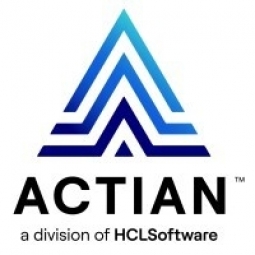Customer Company Size
Large Corporate
Region
- America
Country
- United States
Product
- Actian BXSupplierConnect
Tech Stack
- Electronic Invoicing
- Data Formatting and Validation
Implementation Scale
- Enterprise-wide Deployment
Impact Metrics
- Productivity Improvements
- Cost Savings
Technology Category
- Application Infrastructure & Middleware - Data Exchange & Integration
Applicable Industries
- Transportation
- Oil & Gas
Applicable Functions
- Logistics & Transportation
- Procurement
Use Cases
- Supply Chain Visibility
- Fleet Management
Services
- System Integration
- Cloud Planning, Design & Implementation Services
About The Customer
Louisiana-based ACME Truck Line is a leader in the truck transport of equipment, materials, and supplies throughout the United States. The company operates a fleet of over 2,500 trucks in 30 service markets across 10 states, and hauls 8,000 truckloads of oilfield, general commodities, and expedited freight every week. It’s a complex and fast-paced business. Along with safe, on-time deliveries, responsiveness and integrity of service are key to ACME Truck Line’s success. But responsiveness and integrity of service can be a challenge in the traditionally paper-based truck transport industry where invoice processing standards vary from customer to customer.
The Challenge
ACME Truck Line, a leader in the truck transport of equipment, materials, and supplies throughout the United States, was facing challenges with its invoice processing standards. The company was asked by a major oil and gas industry customer to shift from paper to electronic invoicing. However, the traditionally paper-based truck transport industry had varying invoice processing standards from customer to customer. Before deploying the Actian solution, ACME had to enter all of its invoicing data twice: once in its own accounting system and once in its customer’s e-invoice system. This 'double-entry' practice doubled the risk of errors, delays and rework in the invoicing process. It also had an adverse impact on the company’s customer onboarding process, making it unnecessarily cumbersome and complex and hindering support of high-volume customers.
The Solution
ACME Truck Line engaged an IT consultant, Mike Bernard, to find an easy-to-use solution that could help the company improve invoice processing, accelerate customer onboarding, and scale easily with business growth. Bernard chose the Actian platform and Actian BXSupplierConnect to be implemented as part of ACME’s managed service. Using BXSupplierConnect has eliminated the need for double-entry, significantly reducing invoice errors, delays and rejections, and accelerating time to revenue. A single invoice file is delivered to the Actian platform, which in turn automates data formatting and validation and provides electronic invoicing in the customer’s specified format. With duplicate data entry eliminated and automated upfront error detection in place, ACME’s invoice processing time has decreased, reducing Days of Sales Outstanding.
Operational Impact
Quantitative Benefit

Case Study missing?
Start adding your own!
Register with your work email and create a new case study profile for your business.
Related Case Studies.

Case Study
Taking Oil and Gas Exploration to the Next Level
DownUnder GeoSolutions (DUG) wanted to increase computing performance by 5 to 10 times to improve seismic processing. The solution must build on current architecture software investments without sacrificing existing software and scale computing without scaling IT infrastructure costs.

Case Study
Remote Wellhead Monitoring
Each wellhead was equipped with various sensors and meters that needed to be monitored and controlled from a central HMI, often miles away from the assets in the field. Redundant solar and wind generators were installed at each wellhead to support the electrical needs of the pumpstations, temperature meters, cameras, and cellular modules. In addition to asset management and remote control capabilities, data logging for remote surveillance and alarm notifications was a key demand from the customer. Terra Ferma’s solution needed to be power efficient, reliable, and capable of supporting high-bandwidth data-feeds. They needed a multi-link cellular connection to a central server that sustained reliable and redundant monitoring and control of flow meters, temperature sensors, power supply, and event-logging; including video and image files. This open-standard network needed to interface with the existing SCADA and proprietary network management software.

Case Study
Refinery Saves Over $700,000 with Smart Wireless
One of the largest petroleum refineries in the world is equipped to refine various types of crude oil and manufacture various grades of fuel from motor gasoline to Aviation Turbine Fuel. Due to wear and tear, eight hydrogen valves in each refinery were leaking, and each cost $1800 per ton of hydrogen vented. The plant also had leakage on nearly 30 flare control hydrocarbon valves. The refinery wanted a continuous, online monitoring system that could catch leaks early, minimize hydrogen and hydrocarbon production losses, and improve safety for maintenance.

Case Study
Airport SCADA Systems Improve Service Levels
Modern airports are one of the busiest environments on Earth and rely on process automation equipment to ensure service operators achieve their KPIs. Increasingly airport SCADA systems are being used to control all aspects of the operation and associated facilities. This is because unplanned system downtime can cost dearly, both in terms of reduced revenues and the associated loss of customer satisfaction due to inevitable travel inconvenience and disruption.

Case Study
IoT-based Fleet Intelligence Innovation
Speed to market is precious for DRVR, a rapidly growing start-up company. With a business model dependent on reliable mobile data, managers were spending their lives trying to negotiate data roaming deals with mobile network operators in different countries. And, even then, service quality was a constant concern.








